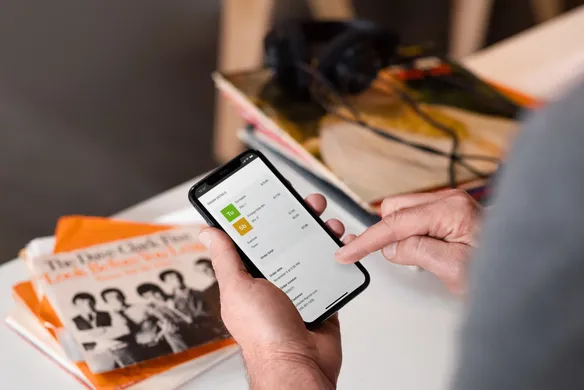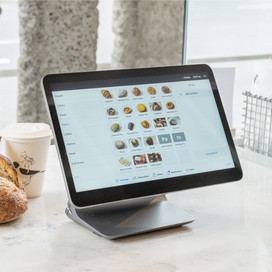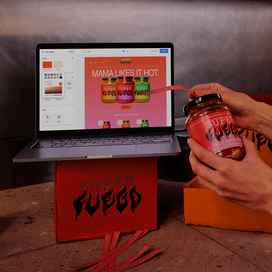Table of contents
Have you ever wondered how do musicians make money? It’s one of those industries where nobody has really put out a clear playbook on how to ‘make it’. We’ve all seen countless talented musicians plying their trade in a pub, or even on the street. We’ve also seen the glitz and glamour of the pop music industry. So, how do some people find fame and fortune while others struggle to make ends meet?
We’re going to look at some achievable ways you can make money as a musician. From how to sell music online to how to market yourself, you can use these tips to start turning your talent into a reliable income.
How to make money with music
If you’re a talented musician or songwriter, there are plenty of ways to make money from your music. The issue is, many artists and bands focus too heavily on one avenue of ‘making it big’. In a lot of cases, getting a record deal is seen as the Holy Grail, and we’ll tell you later on why that should be nowhere near the top of your priority list.
The fact is, you can open up multiple revenue streams from your music if you know where to look. Rather than looking for that big record deal or lucrative tour, you might find more value in spreading your musical talents around and finding various ways to make money with music.
1. Build a YouTube channel
If you’ve already started recording your music, either professionally in a studio or by yourself at home, there’s no reason you can’t put it out there on YouTube. Of course, making music videos can be expensive and time-consuming, but it doesn’t have to be. If you don’t have the resources to create big-budget videos, that’s ok. You can piece together bits of live footage, use animation, or even just create lyric videos, which are becoming more and more popular.
YouTube is great for a few reasons. Firstly, it’s a great way to build your audience because people can access and share your music easily. Secondly, YouTube is a source of income if you get enough views. Once your YouTube account reaches 1000 subscribers, your videos will become eligible for ads, and that means income. On average, advertisers pay around $0.18c per view. The payout equates to roughly $3-$5 per 1000 video views. It may not sound like much, but as your following grows, you can start banking some nice payments.
2. Book gigs
One of the oldest ways for musicians to make money is through gigs. In reality, the money you can make from live gigs varies considerably depending on what type of music you play. Cover bands can generate a decent income, as can DJs. This is because they can find work playing at all types of events, such as weddings and corporate gigs which pay much more than the standard Friday night pub gig.
For an original artist, the going is a little tougher, and you may not make a huge amount of money playing live gigs until you generate a following. However, playing those smaller gigs is one of the best ways to build your fan base. Show people a good time, and they’re bound to tell their friends.
When booking gigs as an original artist, it’s important to have some merchandise to sell, whether it be CDs, t-shirts or anything else that your audience may enjoy. Take advantage of the opportunity to sell merchandise at gigs, because people who are excited about the live music environment are usually willing to part with a few dollars to support the band.
3. Have a musical side hustle
This is such an easy way for musicians to make money, however, many people don’t take the opportunity because they feel it’s beneath them. If you’re a serious original artist, the idea of playing other people’s music may not be too appealing. However, there is money to be made in the cover artist market, and DJing is also an option.
If you want to make money as a musician, don’t let pride stop you from making a few dollars. Remember, the money you make playing covers can go towards producing the music you’re passionate about. At the end of the day, it’s better than working a part-time job you don’t like in order to fuel your musical aspirations.
4. Look for cost-effective distribution
Music distribution comes in many forms, and when looking for a way to reach your audience, you should leave no stone unturned. You can use streaming services like Spotify, Tidal or Apple Music. The royalties for plays are generally quite low, but much like the YouTube example, it all adds up.
For physical distribution, you can always sell CDs at your gigs, but there are online platforms like CD Baby which make it easy for you to sell physical music online. Also, ask your local record stores. They may not be as abundant as they once were, but many stores are happy to support local artists.
5. Sell merchandise online
Building a website and selling products online is crucial in the modern world. More people shop online than ever before, so you don’t want to fall behind. The great thing is, it doesn’t need to be expensive to get set up. A product like Square Online Store makes it easy to set up your online store and accept payments from anywhere in the world. You also get plenty of insights and analytics to help you build an email marketing list, which we’ll touch on later.
6. Become a teacher
If you want to dedicate all of your time to music rather than taking on a job to make ends meet, why not consider teaching music? You don’t need any formal qualifications to set up a tutoring service. In fact, when you wonder how do singers make money, many of them use teaching to ensure an income. Whether it’s vocals or teaching an instrument, there is always a market if you’re good with people and can explain your skills in a way that people understand.
In the modern world, you’re not even limited to your local area. You can offer online lessons too, so you can teach any time, anywhere!
7. Consider business marketing techniques
Finally, the best piece of advice for any musician is to treat it like a business. Creative people often shy away from this way of thinking, but the reality is, if you want to generate an income from your music, you need to operate like any other business. Use a business planning checklist to get started, and set yourself up as a creative professional. Use professional invoicing tools like Square Invoice to make sure you get paid quickly for your work. The other crucial area where you need to mimic a traditional business is in marketing, which we’ll discuss below.
How to get more fans for your music
Finding fans and listeners for your music is no different to the way any business finds customers. Ultimately, a multi-faceted approach is what you need. You’ve got your traditional avenues such as playing gigs and sharing music online. But why not consider some business marketing techniques?
One of the best ideas is to create an email list. It’s not the first thing that musicians think of, but why should music fans be any different to toy store customers? If they’re interested in what you do, ask them to sign up to an email list and stay connected with those fans regularly. It’s a great way to promote upcoming gigs, releases and merchandise.
Also, social media is a great way to stay connected with fans, however, be wary of spending too much on paid online advertising. It works for a lot of businesses, but with music being such a subjective taste, it’s harder to isolate your target audience with paid advertising campaigns.
Mistakes to avoid as a musician
Finally, let’s look at a few tips to help you avoid common mistakes.
1. Chasing record deals
We mentioned the never-ending pursuit of a record deal earlier, and here’s why it shouldn’t be the be-all and end-all of your existence. Record deals are stacked heavily in favour of the label. Usually, you’ll get minimal royalties because the label technically owns your music. Sure, they might give you an advance payment, but you need to pay that back through royalties, tour income and merchandise sales. In fact, even successful, established artists have ended up owing money to their label at the end of an album and tour, because essentially the label controls every expense and every piece of income.
In the digital world, if you’ve got savvy marketing skills and a good product, you can reach your audience without the help of a label. You also maintain the right to your music and have more control over your destiny.
2. Failing to market yourself
That brings us to the next point. Failing to market yourself is a trap that many artists fall into. If you think that producing music and uploading it to a streaming service or YouTube is going to make you rich, think again. The market is simply too vast, and you’ve got too much competition. To succeed, you need to market yourself in an intelligent way.
3. Over-spending on equipment
Remember we talked about treating your music as a business? That applies to the money you spend too. So, carefully consider what you need in order to ply your trade. The fundamental gear to perform live and some decent recording equipment is often all you need. If you plan on recording your polished music in a studio, then your home studio only needs to be good enough to produce a demo. Don’t overspend on gear you don’t need, because ultimately it all eats into your profits.
4. Neglecting social media
Finally, neglecting social media is a sure-fire way to never get anywhere. We did mention that you shouldn’t spend too much on paid social media advertising, but that doesn’t mean you should be inactive. Upload content regularly, whether it be music, behind the scenes recording videos, images and even updates on what you’re doing. This keeps you connected to your audience and gives you a proven channel to promote your products. Plus, it’s free!
![]()












